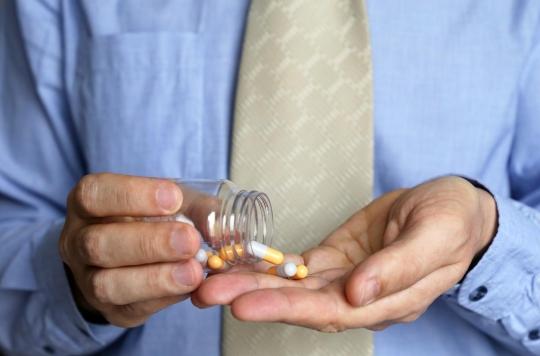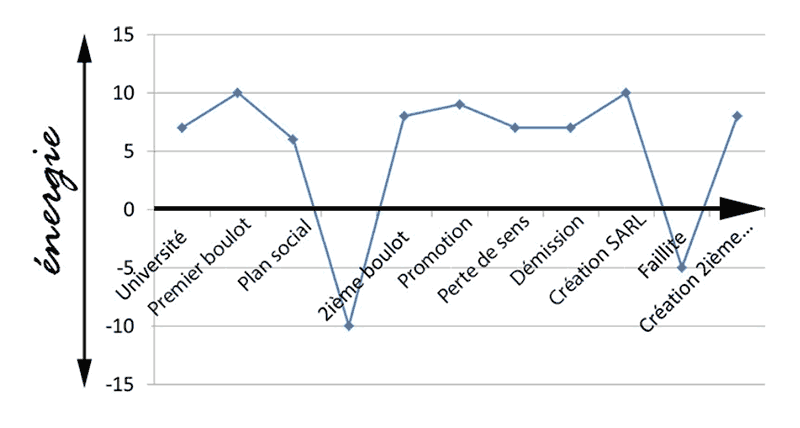While more and more French people are consuming food supplements in the hope of relieving chronic stress, these remedies are generally superfluous, warns 60 Millions de Consommateurs. To stay in shape, nothing beats a varied and balanced diet.

Winter is coming and with it fatigue. This period is also often accompanied by stress which can lead to insomnia, which is itself a source of stress and fatigue. To break this vicious circle, many French people turn to food supplements. So much so that, according to the National Syndicate of Food Supplements, in 2018, sales of “Mood, stress, sleep” supplements amounted to around 163 million euros in pharmacies compared to 154.7 million in 2017. But d ‘after 60 Million consumers who has just released a special issue devoted to dietary supplements, these remedies are generally ineffective. Worse still, they can lead to potentially dangerous side effects if overdosed.
Of the 24 cans studied by the publication, 17 have marine magnesium as their main or secondary ingredient. According to the Synadiet, this mineral salt, “intervenes in the production of energy inside the cells and it is essential for the transmission of nerve impulses and muscle relaxation after contraction.” However, the manufacturers offer a daily intake well above the nutritional reference values (375 mg per day).
Out of 24 products analyzed by 60 Million consumers, six offer 300 mg per day, or 80% of the NRV. One of them even suggests 363.3 mg per day. “It’s way too much ! It’s more like a shoot than a supplement”, is surprised Emilie Garel, psycho-nutritionist interviewed by 60 Million consumers. According to her, a varied diet covers all our daily mineral needs. “Food supplements against stress do not de-stress at all. And, in general, food supplements, if you have a sufficient and fairly balanced diet, are useless. At least, we have never proven their effectiveness”, adds Patrick Serognutritionist doctor interviewed by Why Doctor.
Magnesium overdose, however, remains very rare. The dose not to be exceeded is 700 mg per day. Because overconsumption can in particular have laxative effects. Emilie Garel is particularly concerned about the tendency towards self-supplementation. According to her, turning to food supplements at the first stroke of fatigue is worrying. “We should first review our diet and our way of life and if the fatigue persists perhaps consult a doctor because the problem could be quite different”.
First of all, understand the origins of fatigue
According to the High Authority for Health (HAS), magnesium alone is of clinical interest only in proven magnesium deficiencies. These are revealed by a blood test. It is therefore necessary to ask a doctor the interest of such a cure and not to practice self-medication.
“When someone is tired, you have to know why he is tired. Does he have an iron deficiency problem? Is it an underlying disease that appears already? We will first do an interrogation and then a clinical examination to try to find a lead. If we find nothing, we will fall back on psychological conditions that can be unfavorable for the patient. If he is just stressed, fatigue is a reaction to show those close to him that he is in pain and that something must be done for him. It is not because you are going to give tablets that his stress will go away”, assures Patrick Serog.
In these food supplements, we also find a lot of vitamin B6 (in 9 of the products studied) which is added in 7 magnesium formulation, also spotted 60 Million Consumers. It also has the properties of helping the normal functioning of the nervous system and reducing fatigue. But as with magnesium, the doses of dietary supplements seem high. If in Europe, for an adult, the regulation is 1.4 mg per day, of the 10 products containing B6, 7 suggest taking 1.4 mg or 100% of the NRV. 2 even pushes up to an intake of 2mg. But the excess of vitamin B6 is not without risk: it can generate neuropathy, even if it is very rare.
Good nutrition is everything
Finally, who says stress often says poor concentration. During exams, students tend to flock to products that promise “memory and concentration”. In the latter, we sometimes find Omega 3 and Ginko biloba. However, according to the Marketing Authorization Commission of the National Agency for the Safety of Medicines and Health Products, the risk-benefit ratio that emerges from medicines based on this plant is unfavourable.
Thus, it seems more effective to find the solution in his diet. “With supplements you swallow a pill. On the pleasure side, there is nothing! While eating three squares of dark chocolate, which provide about 54 mg of magnesium, is something else in terms of taste and food absorption process”, recalls Emilie Garel. Patrick Serog calls for at least two meals a day, based on vegetables, cooked or raw, proteins, animal or vegetable (it is better to mix the two, he advises), dairy products and fruits. And to conclude: “Life is not that complicated. Stop complicating it. Laugh every day to be in a good mood, it does a lot of good to manage to support your daily life. To de-stress, this is the best medicine you can find.”
.
















